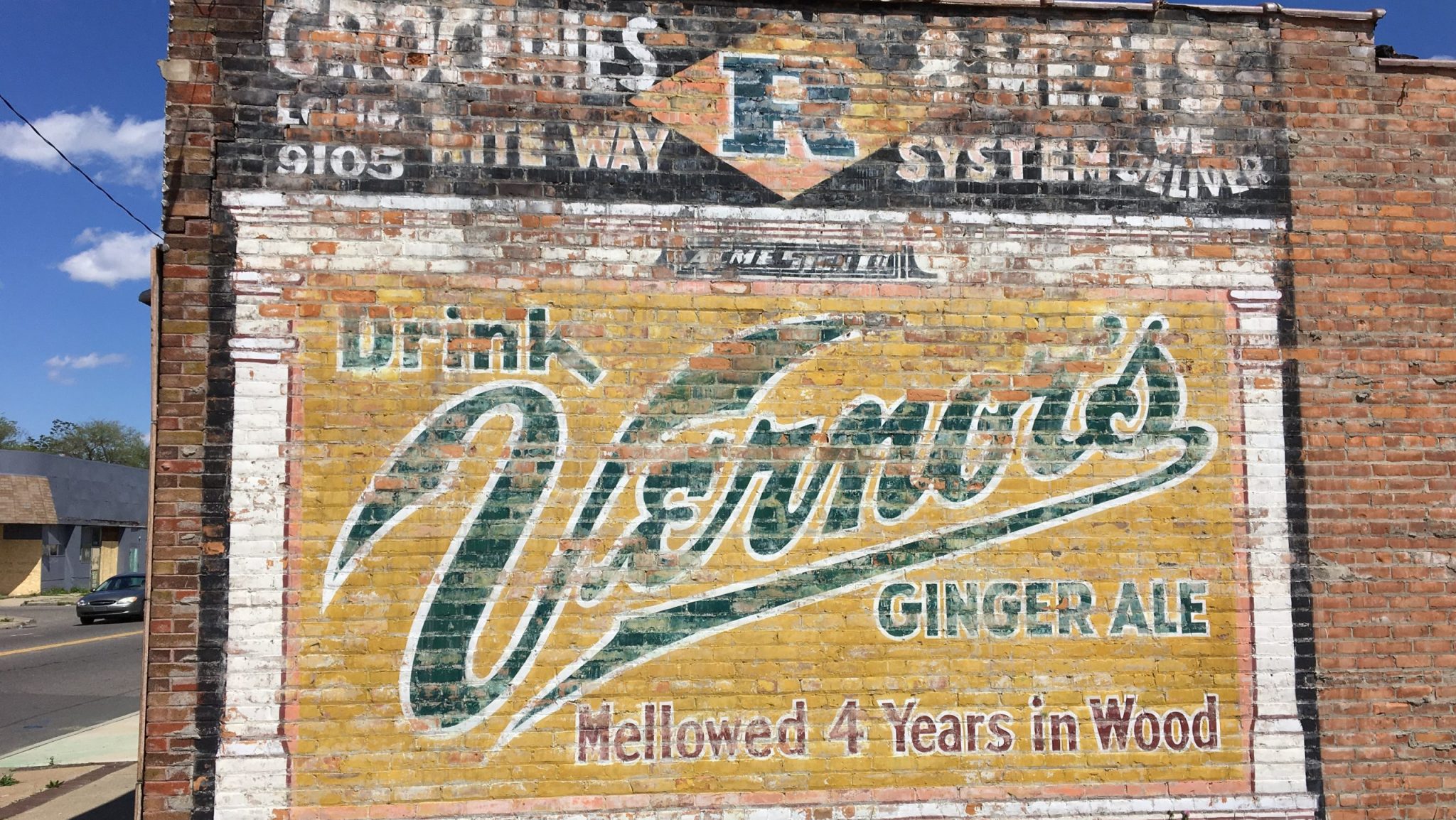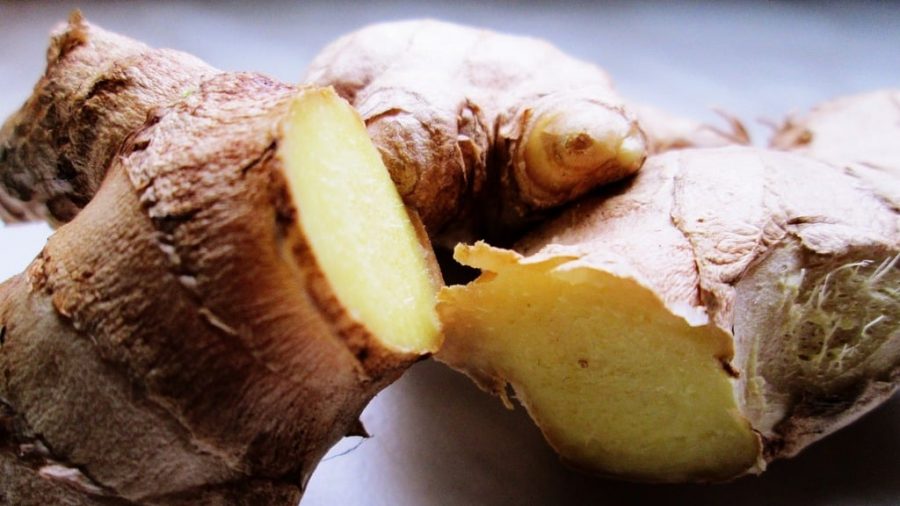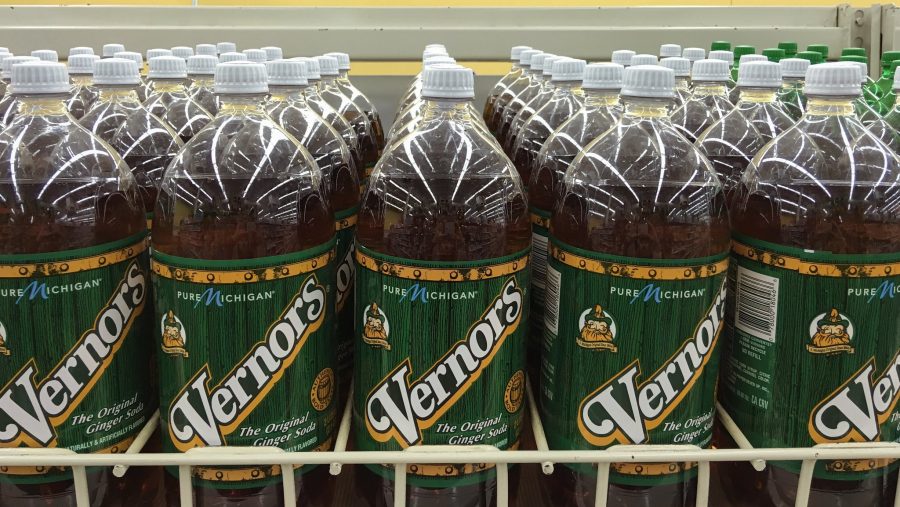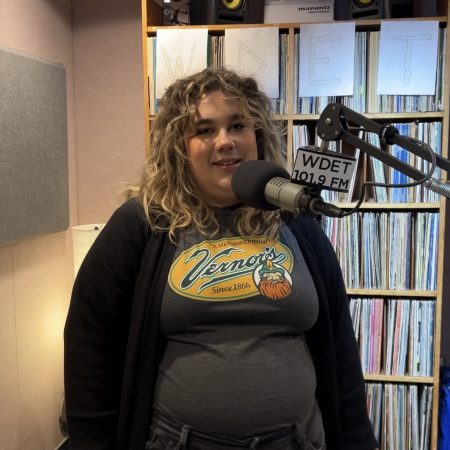CuriosiD: Is the medicinal magic of Vernors a myth or reality?
In this episode of “CuriosiD,” we answer the bubbling question of why so many metro Detroiters view Vernors Ginger Ale as a cure-all for stomach aches, colds and more.

WDET’s CuriosiD series answers your questions about everything Detroit. Subscribe to CuriosiD on Apple Podcasts, Spotify, NPR.org or wherever you get your podcasts.
In this episode of CuriosiD, we answer the question:
“Why do metro Detroiters think Vernors, the pop, is the cure-all for all ailments?”
Vernors Ginger Ale is one of America’s oldest soft drinks and a favorite hometown beverage in Michigan — born right here in Detroit.
According to legend, it all began in 1866 with James Vernor, a local pharmacist who concocted a bold, ginger-based syrup. As legend has it, when called away to the Civil War, Vernor stored his special mixture in an oak cask. Four years later, he returned to discover that it had transformed, aged into ginger ale with a uniquely spicy, zesty flavor that was an instant hit in Detroit and beyond.
Regrettably, that story is simply legend. In the book, ‘The Vernor’s Story: From Gnomes to Now,’ author Laurence Rouch wrote that the formula was likely not invented until after the Civil War.
Whatever the timeline, the soda was celebrated for its potent ginger kick, and Vernor’s gained a reputation as an easy to swallow medicine, believed to settle stomachs and — according to lore — more.
The short answer
To answer Ashley’s question, I first wanted to see if it was true that many metro Detroiters and their families have a history of turning to Vernors when under the weather. Spoiler alert: it is.
From drinking Vernors hot to soothe colds and upset stomachs, to mixing it with some liquor (for those 21 and older) and making “hot toddies” to ease sore throats, we received messages from dozens of listeners who genuinely believe in Vernors as a “magic cure.”
Ginger has been used for thousands of years in many cultures for the treatment of numerous ailments, including colds, nausea, arthritis, migraines and more. While the original Vernors recipe may have used real ginger, today’s Vernors does not.
So does it really work?
Dr. Eli Eisman, a family medicine resident in the Detroit area, says yes — 100% yes.
“Vernors is going to cure everything going on with you,” he said, jokingly.
But Eisman didn’t dismiss the legend entirely, adding that there’s some truth at the core of Vernors’ local lore.
Rooted in medicine
Eisman says it’s definitely possible that some of the constituent parts that may have been in Vernors’ original recipe had curative effects.

“Ginger has a longstanding history of being recognized for its medicinal value and it has this super interesting ethnopharmacology history as well,” he said. “Ginger is one of those plant medicines that shows up in many traditional and indigenous practices, as well as culinary practices around the world.”
That’s right, it’s the ginger part of ‘ginger ale’ that does, in fact, serve as a plant medicine. Ginger is known as an anti-bacterial and has mild laxative properties — perfect for nauseous tummies.
The power of the mind
Though today’s recipe no longer contains real ginger, metro Detroiters still swear by it as a cure for everything from stomach aches, to colds, and even hangovers.
Dr. Lynn Smitherman is a pediatrician in Detroit who’s been practicing for more than 30 years. She says many of her patients’ families tell her Vernors is a must when someone’s feeling out of sorts.
“If my grandmother came up to me with a warm ginger ale if I wasn’t feeling well, I’d definitely accept it. And it may or may not help, but sometimes that and a little TLC can go a long way.”
— Dr. Lynn Smitherman, Detroit pediatrician
“The medicinal effects in Vernors and other ginger ales are pretty much non-existent,” Smitherman said. “That said, a lot of people think it feels good, and that’s perfectly fine. If my grandmother came up to me with a warm ginger ale if I wasn’t feeling well, I’d definitely accept it. And it may or may not help but sometimes that and a little TLC can go a long way.”
So there it is. Vernors as it is today has little to no medicinal value, according to Eisman and Smitherman. However, the value of nostalgia, comfort, TLC and family tradition is its own kind of medicine.

A creative cure, hypothetically
But I couldn’t quite let this one go…
What if there are other useful situations for Vernors, even without the ginger? I had to pose some hypothetical situations to Eisman.
Amanda LeClaire: I fall out of a tree. I break my foot. Will Vernors cure that?
Dr. Eli Eisman: I can see Vernors being valuable here if you grab an ice cold can out of the refrigerator and maybe use it as an ice pack. But that’s probably about it.
ALC: I have athletes foot, toenail fungus. Do I drink Vernors?
EE: As you’re in line at the pharmacy, getting the antifungal cream that you need to get, buy a Vernors as well. Make you feel better.
ALC: OK, I am a well known romance book heartthrob. Fabio, I’m Fabio, and I get dandruff. Should I drink Vernors?
EE: Vernors probably not going to be the thing that cures your dandruff, but if you know the other heartthrob in the book sees you drinking the Vernors, [you’d] probably get their heart throbbing even more.
ALC: I had a dark vision of the future. Do I drink Vernors to make myself feel better?
EE: Enthusiastically, yes.
Meet the listener

Ashley Fassett is the operations and membership coordinator for Outlier Media. According to her Outlier bio, her favorite places in Detroit are those with family ties — the Maltese American club for a Kinnie and Little Caesars Arena during a Red Wings game.
We want to hear from you!
Have a question about Detroit you’d like the answer to? Let us know here or fill out the form below.
More from CuriosiD:
- What’s the highest point in Detroit?
- What is the history of Outer Drive?
- What happened to the ‘World’s Largest Stove’ in Detroit?
Support the podcasts you love.
One-of-a-kind podcasts from WDET bring you engaging conversations, news you need to know and stories you love to hear.
Keep the conversations coming. Please make a gift today.
